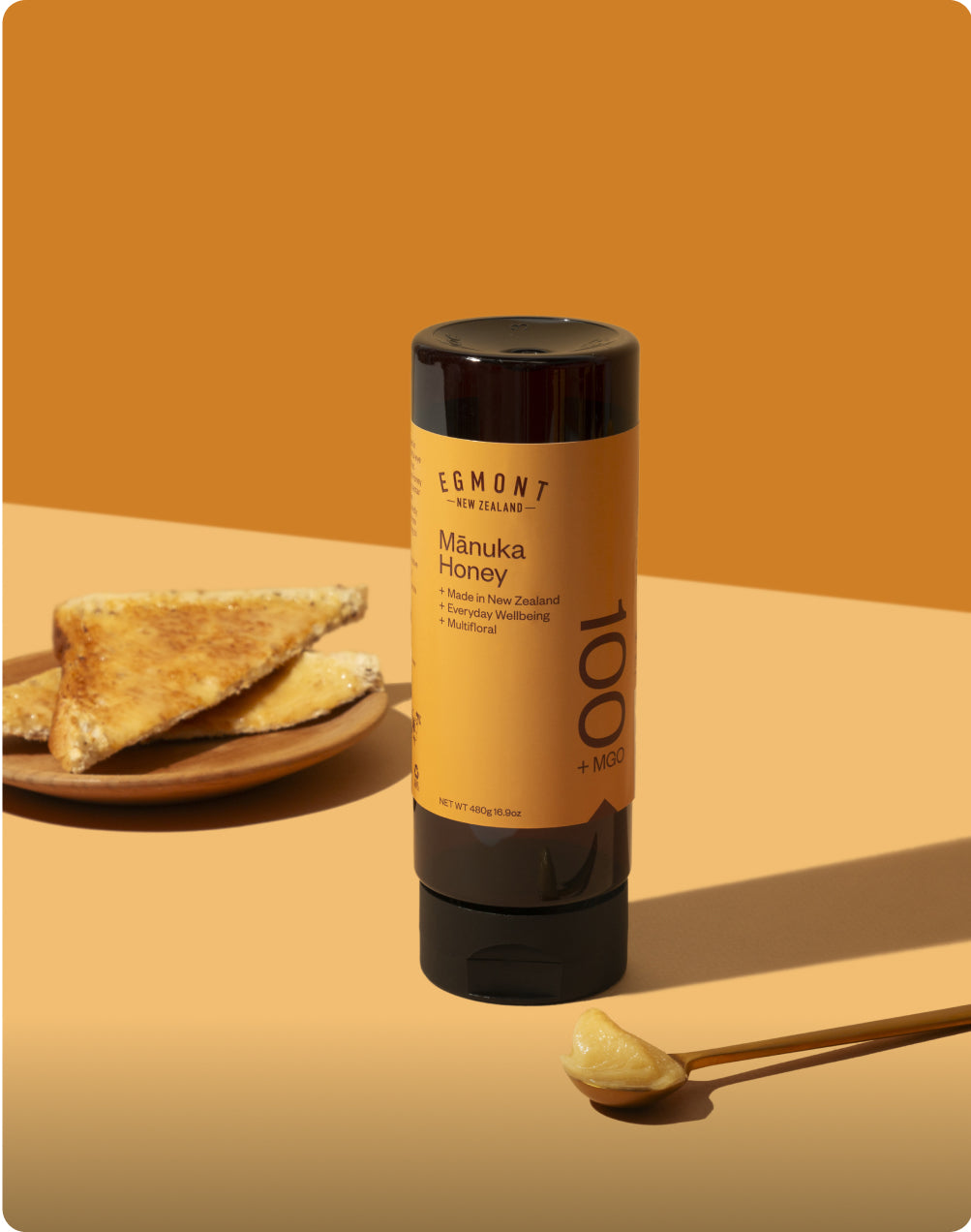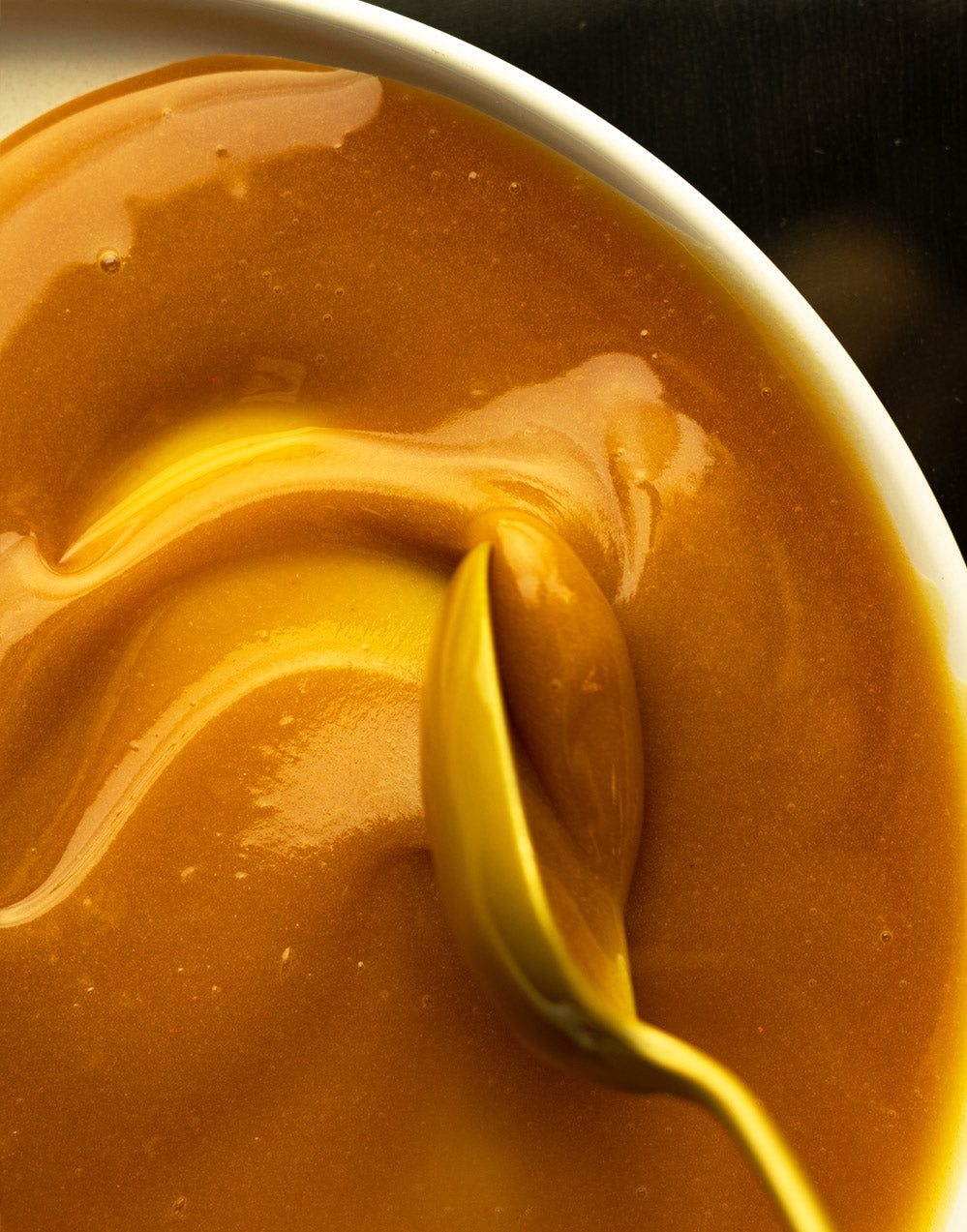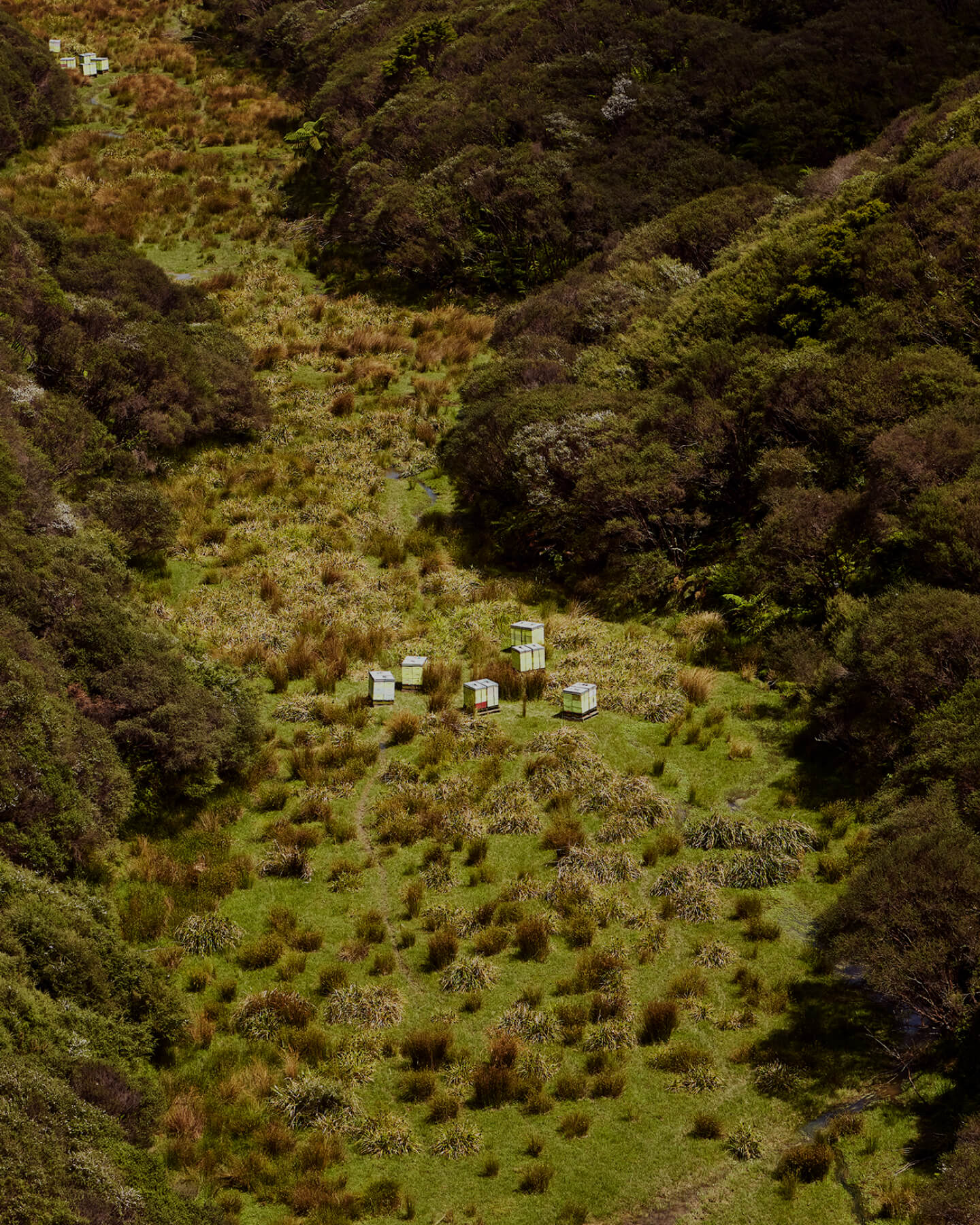
Sustainability
Here at Egmont Honey, we believe in doing good not only for our bees, but for our environment too. Check out out the following to see how a little change can do a lot of good.
Doing Good at
Egmont Honey
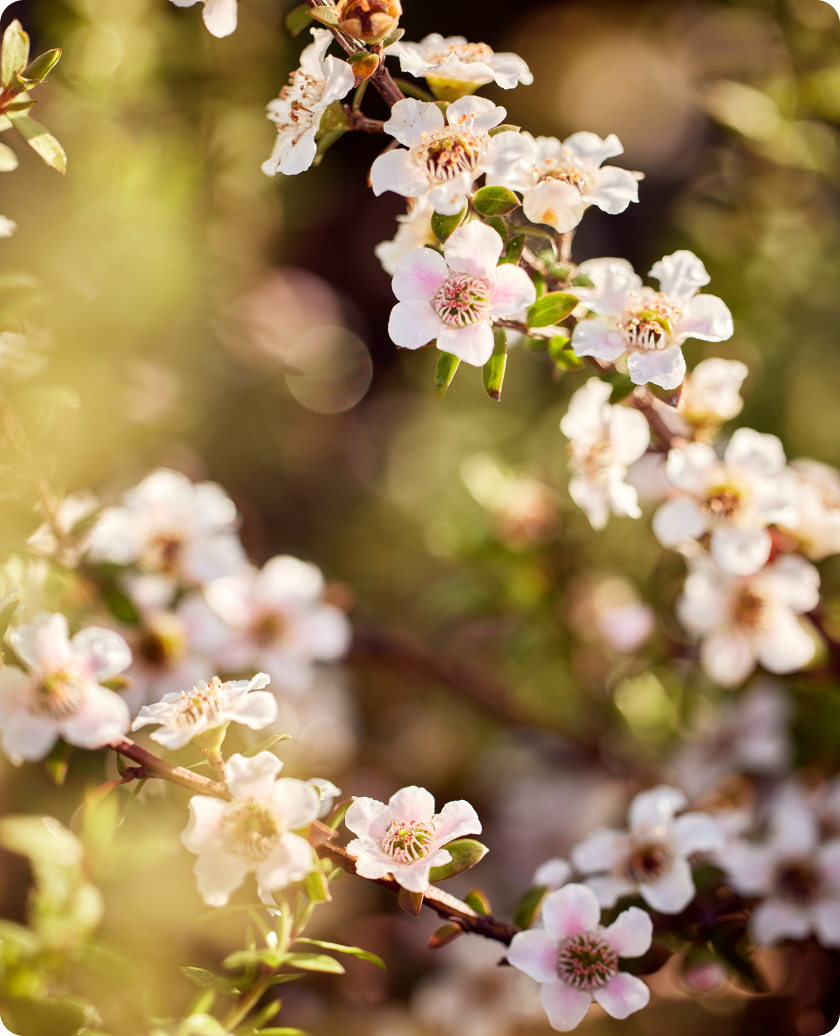
Here at Egmont Honey, we believe in doing good not only for our bees, but for our environment too.
Doing Good at
Egmont Honey
100% recycled plastic
Our products are packed into 100% recycled plastic rPET jars. Did you know it requires 79% fewer greenhouse emissions and less energy to create recycled PET jars than new plastic jars?
Hive To Home
We own the farm, the hives and the factory, meaning a smaller supply chain and lower greenhouse gas emissions!
Regenerative Farming For the Future
We're returning farmland to its former state by planting Mānuka tress alongside other New Zealand natives. We're also working with the Taranaki Kiwi Trust to trap introduced predators on our South Taranaki farm. This means we will eventually be able to introduce Kiwi into the native forest that makes up the majority of the farm!
Non-GMO, Glyphosate-residue free, antibiotic free
Our hives are located deep in New Zealand's remote native forests, far away from any pesticides or contamination commonly found in other honey-producing countries. Our independent laboratory testing certifies that all our honey is non-GMO, glyphosate residue-free and antibiotic free - nothing to hide, nothing but nature.
No commerical pollination
Some apiaries move their bees to commercial orchards during the winter, but our girls work hard enough making honey during the summer. We leave them to rest during the 'off season' to reduce any extra stress.
Increasing Bee Populations
Bees are integral to the ecosystem. Without pollination, we would have no food and therefore no life as we know it. Our beekeepers carefully and ethically foster queen bee numbers through disease and swarm management, so that the population can thrive.
How you can
help the bees
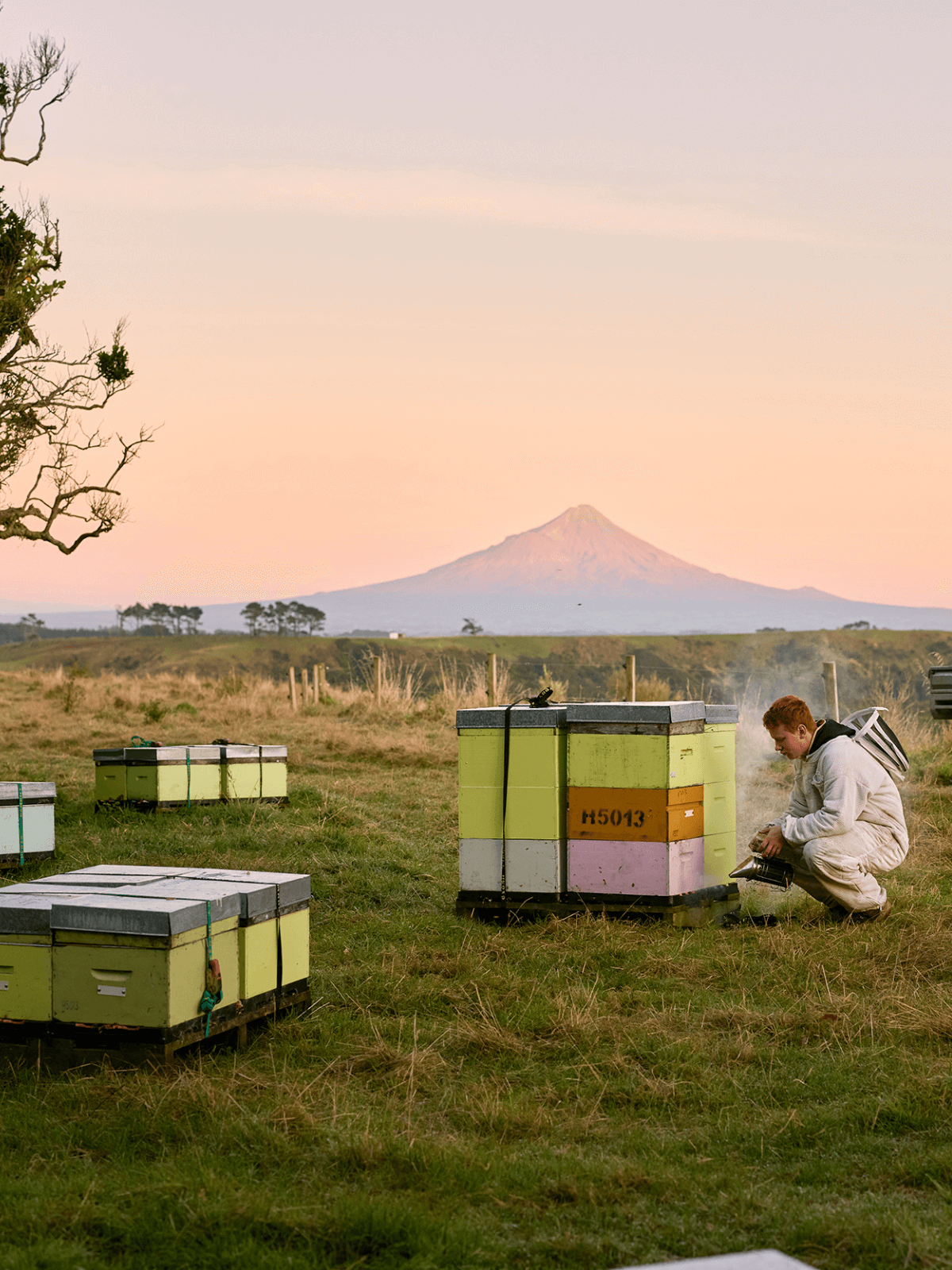
How you can
help the bees
Plant Bee-Friendly Flowers in your garden
Bees are particularly drawn to blue, yellow, purple and white flowers. So stock up on lavender, borage, cornflowers, Californian poppies, pansies, etc!
Use Organic Pesticides
Skip the toxic pesticides and herbicides! Opt for organic products to fertilise and nourish your garden instead.
How to help a sick bee
If you find a sluggish-looking bee that's struggling to fly, chances are they've been blown off-course an need a helping hand. Place a drop of honey or sugar water mixture on a teaspoon in front of them to help them regain their energy levels.




